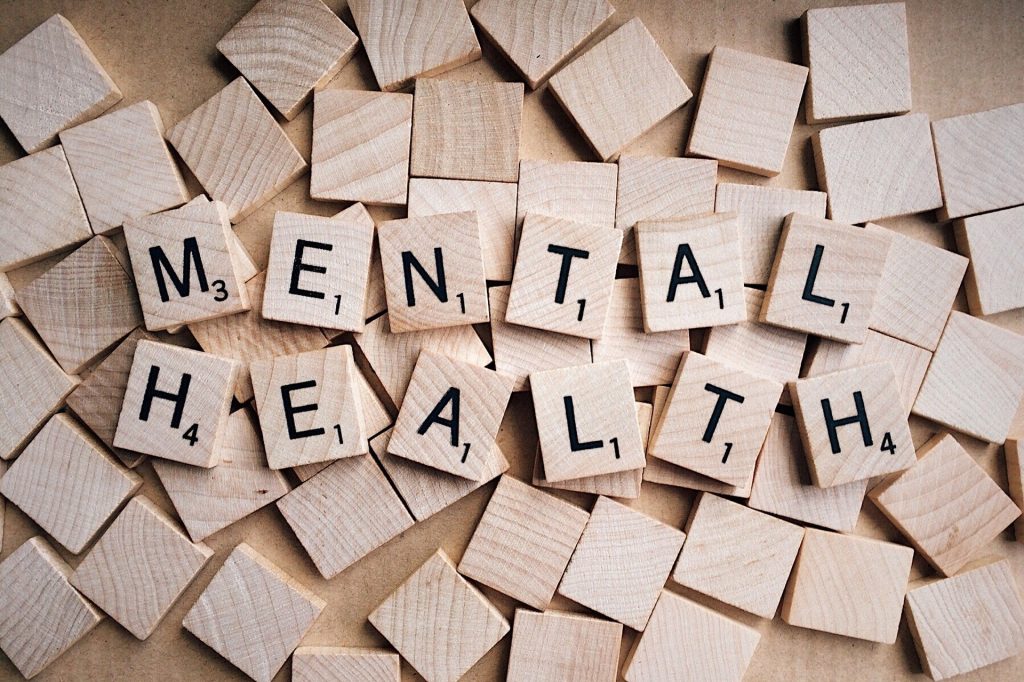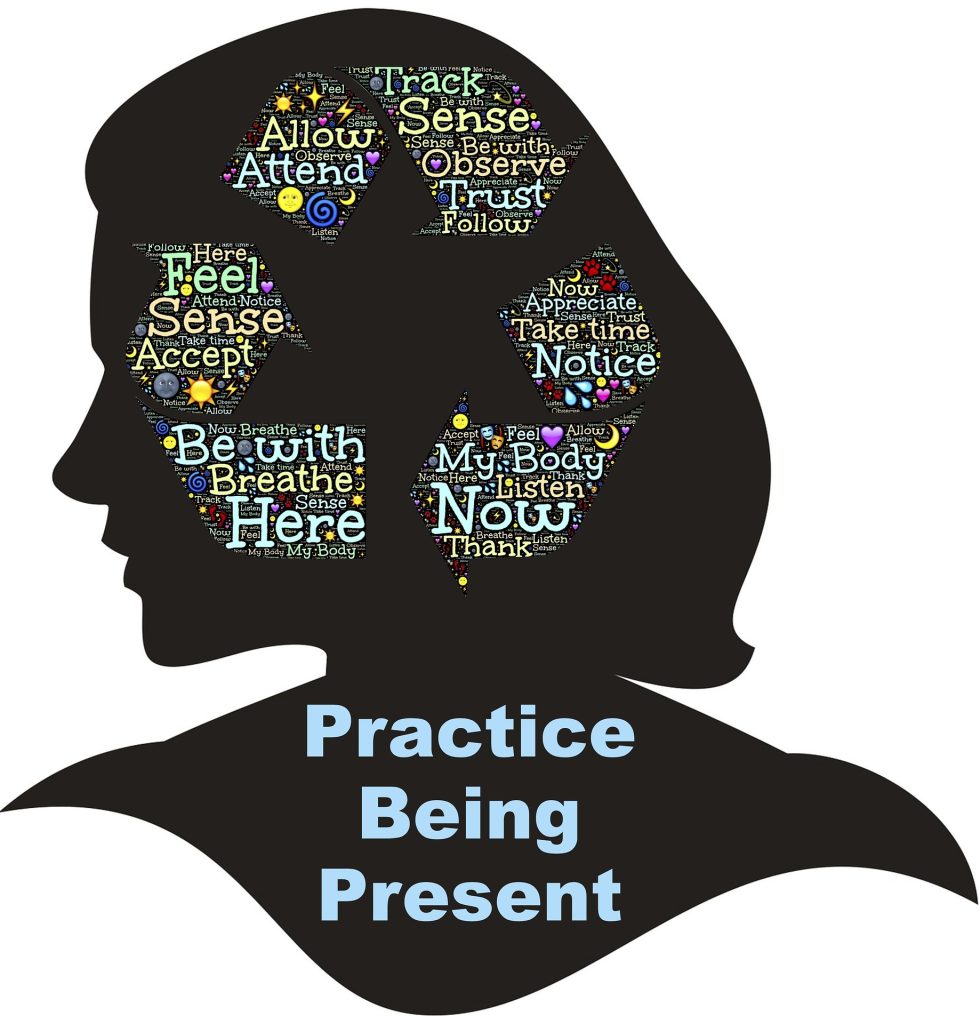One of the things that I have learnt to appreciate since a few years, is the capability to focus, to live in the moment. Discovering how mindfulness can help you be in the present, has been a real blessing.
This is not something that comes naturally to me, I am on the contrary quite forward thinking, I like making plans, go ahead in my mind figuring out how things are going to turn out, always picturing the next thing that I’m going to do.
Furthermore, the modern work culture doesn’t help at all with that, with all the value it puts on multitasking, worshipping the capability to do multiple things at once.
And we got so used to that, that we began doing it in our day-to-day life too, in a desperate effort to save time, hoping to earn some of it back for us at the end of the day.
The result is that we seldom take advantage of that time wisely, and we finish to go through it in the same manner we have gone through the rest of our day: absent minded, doing one thing and already planning the next, dividing our attention between the myriads things we have to take care of.
Mindfulness can help you improve your mental health

This behaviour has such a detrimental effect on our wellbeing, but we fail to notice it, and then we begin feeling depleted, exhausted, even after a good night sleep or a good weekend, or maybe even a holiday. We end up like a hamster on a wheel.
We are unable to stop the incessant activity of our mind, instead we think that this is what makes us productive, and more capable, whilst on the contrary it takes away more energy that we realise, in a closed loop that we have initiated ourselves.
For this reason, since a few years I’ve began to feel the need to stop that, and be able to truly savour certain moments, and not letting them slip away from my fingers in a blink.
Meditation made easy
I knew that meditation could help with that, but having my type of mind it was not easy to stay and just be. I was completely unable to stop my thoughts, and that left me frustrated, and took away the motivation to try again. For instance, when I tried to meditate before going to bed, my mind shifted from my breath to the list of things to do the next day, or to a problem that was bothering me at work, leaving me more anxious than when I started breathing in the first place.
This was the moment that Mindfulness came in to the picture, opening a window of opportunity, and a different approach to meditation that made all the difference for me.
What is Mindfulness and how it works
Mindfulness is a technique that simply invites you to be present in what you do.
What you do is start a series of basic activities, making sure that your mind stays in the activity you are in at the moment. Might seem banal, but how many times have you actually brushed your teeth, thinking about what you are doing? The point is going through some of the activities we tend to do on auto pilot, and be conscious about them.
Mindfulness based cognitive therapy
The MBCT, or Mindfulness Based Cognitive Therapy, is a technique developed by Oxford professor Mark Williams and his colleagues. It is based on a program of 56 days, in which you gradually begin to focus on being present on a couple of activities per day, making the effort to be in the moment and noticing everything about the activity you are at, (brushing your teeth, preparing breakfast etc,). After a while, you add some exercises thought to exercise your attention and your presence, like savouring a food you eat for a couple of minutes noticing your sensations. You exercise “dis-habit” in which you do something usual in a different way, to enhance your attention to the present. And then you get to focus on mindful meditation, more and more each day, until you reach the end of the program hopefully with new good habits, and the tools to use mindfulness to improve your being in the moment.

Mindful meditation
Mindful meditation was a revelation for me: a spell dedicated to still your mind whilst breathing, that actually takes away the frustration (the one I felt when trying other forms of meditation).
In fact, what the mindfulness suggests is to try to be still, and then notice the thoughts that come into your mind. Looking at them from the outside, just like clouds that come into a blue sky, and then acknowledge them, and let them go away. Without judgement, without feeling that you failed because you let that thought enter your mind, just acknowledge it and let it go away. No matter how many thoughts come into your mind, you just have to see them and then try to return to stillness.
For me this was ground breaking, as it helped me to stop feeling a failure because I could not stop the thoughts, and helped me instead make some distance from the thoughts.
Because what you need to realise is that you are not your thoughts.
On the contrary you can choose your thoughts, and if a thought arises and makes you feel bad, you have the choice to refuse that thought and think a more pleasant one.

How it helps
The other important thing of mindful meditation is how it helps you deal with emotions. When you are unable to stop your thoughts there is no use in trying to meditate to calm you down, because you do that whilst you are caught up in the emotion, and that emotions simply rules over you during the process.
Thanks to mindful meditation you learn to do something different: whilst meditating you are invited to focus on the emotion you feel. Not judging it, not finding a why, but just acknowledging it. Acknowledging means realising that in that specific moment you feel, sorrow, or fear, or uncertainty, so you are experiencing that emotion in that moment, but you are not that emotion. This means understanding that it is a transitory moment, and it will sooner or later cease. There is no need to force you out of that emotion, just realising what are you feeling, and allowing yourself to feel it.
The good bits
Focusing on this different perception has the incredible effect to diminish the power that the emotion has on you, because you realise that it is just another feeling, another emotion. And it won’t last forever. It helps you putting things into perspective, and helps you understand much better the nature of the emotion, even if you are not actively trying to.
How mindful can help you be in the present and change your perceptions
Once I learnt the mindful approach, I have been able to try different forms of meditations too, and I have been able to improve my awareness on being increasingly able to focus on the present moment. It is a learning curve, and I am far from perfection, but simply more and more capable to realise when I am victim of my thoughts, and when I’m wasting my precious time not being present. This does not mean that I am always present, but that I am able to realise when I’m not, and I’m able to shift my focus to the present. Sometimes I have to do it more than once, but still is going better and better each day.
I hope you found this interesting and are willing to try Mindfulness, that is nothing more than presence in your life! The approach is so basic and simple to understand, yet incredibly powerful, and it can open the door to a different way to see your life, a more insightful and helpful one.
If want more information on mindfulness, you can find them here. If you want to focus on building more helpful habits, read my article on creating a morning self care routine!
Happy here and now to you, my friends!